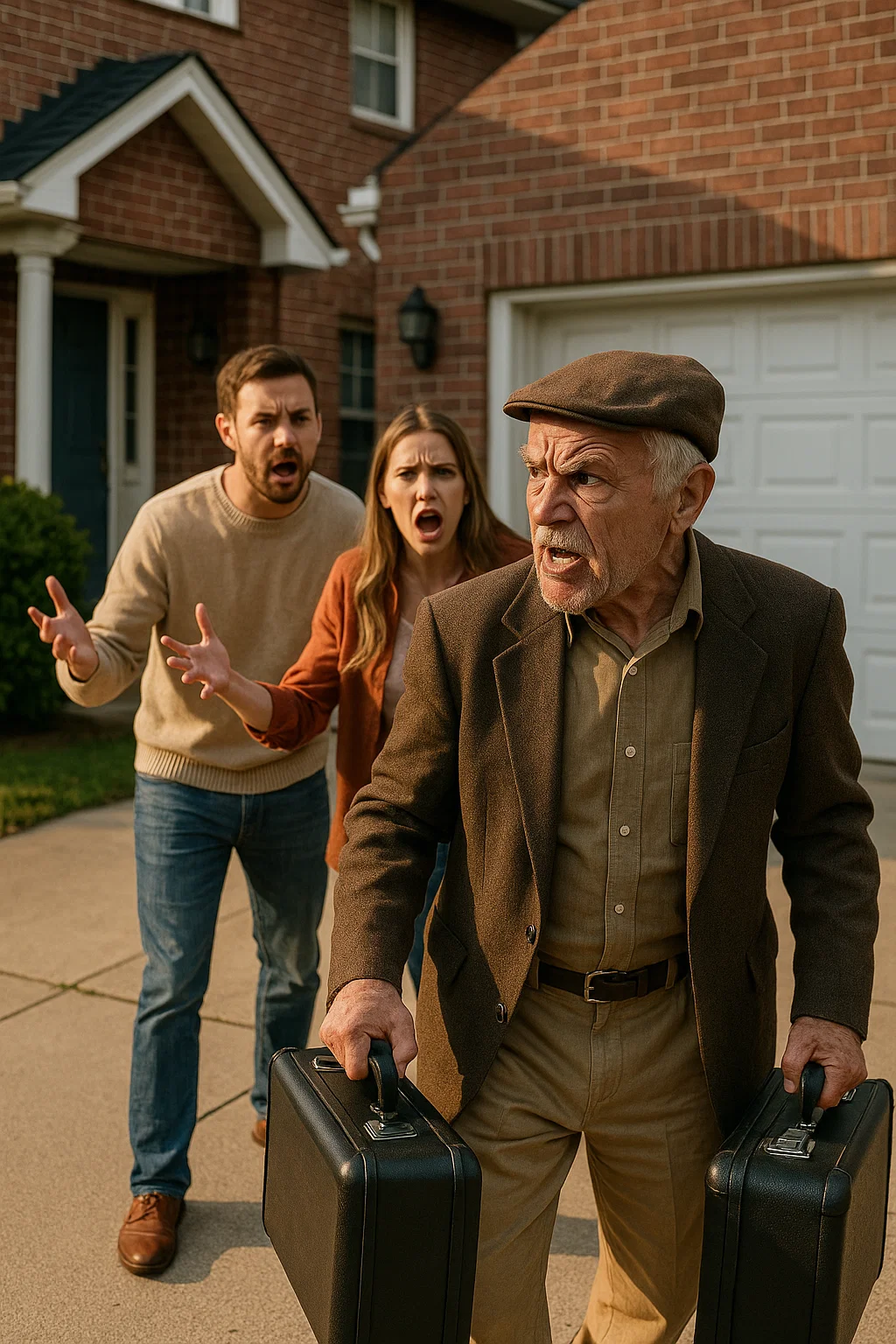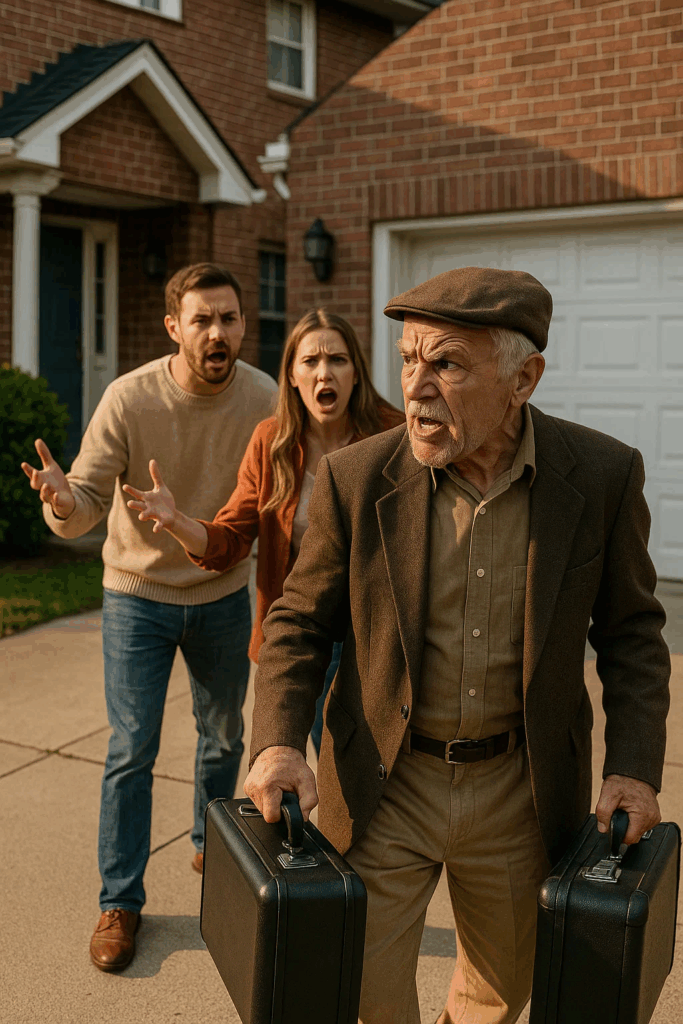“We can’t keep you here any longer. You need to leave.”
My son looked me right in the eyes when he said it.
So I didn’t argue. I simply walked away without a word.
The next day, what I did with my savings left the whole family speechless.
The living room was dim—just how I liked it once the sun went down. The faint scent of jasmine tea lingered in the air, and the slow, steady tick of the wall clock filled the quiet. A sound I had grown oddly fond of in these later years.
I was folding laundry when it happened. When those words landed.
My son. My only child.
“There’s no space for you here anymore. You’ll have to move out.”
No hesitation. No flicker of remorse. He stood there, arms crossed, speaking as though he were addressing a stranger, not the woman who raised him alone. The one who skipped meals so he could eat, who wore frayed shoes so he could start school with something new.
For a moment, I thought maybe I’d misheard. That age had dulled my ears. But no—his wife sat on the sofa, eyes glued to her phone, offering no objection. My grandson looked up briefly from his video game, then turned back to the screen.
I tried to laugh it off. “Minh… what are you saying? Where would I even go?”
His voice stayed firm. “We’ve decided. Your room’s going to be our office. You’ve been here rent-free long enough. There’s a retirement home nearby—you should look into it.”
The words hit like a shove. A retirement home? I didn’t know a soul there. I had been the one cooking their dinners, looking after their child, keeping their lives running. And now, like something worn out, I was being set aside.
I didn’t fight back. That night, I packed. Pride can be a strange companion in old age. My hands shook as I folded my clothes into my last suitcase. I would not cry in front of them. I wouldn’t give them that.
But I didn’t go to the retirement center. Instead, I boarded a bus out to the edge of the city and found a small guesthouse by the river. The room smelled faintly of old paper and forgotten summers. It was quiet. No one asked questions. That was enough.
Lying in bed that night, I stared at the ceiling, then at my suitcase, then at the bankbook hidden in the folds of my wedding ao dai.
They didn’t know. No one knew. Over the years, I’d quietly saved—every odd job, every red envelope, every coin slipped into the jar behind the rice sack. When my husband died, his small insurance payout stayed untouched. Let them believe I had nothing. Let them think I relied on them.
I opened the bankbook. Nearly a million dollars. Not enough to be rich—but enough to change everything.

And I knew exactly what to do.
For sixty years, I had lived for other people—cooking, cleaning, sacrificing. That morning, I decided to live for me.
I had always dreamed of a little place of my own. A café. Or a flower shop. When I was young, I told my husband I wanted to open a teahouse by the river. He laughed and said, “Only if you bake.”
So I would. But not just for myself. For women like me—forgotten by family, overlooked by the world. A place where we weren’t burdens, but honored.
Three months later, that dream stood on a quiet, tree-lined street. An old, narrow shop, walls painted soft lavender and cream, second-hand furniture polished until it gleamed. I called it Floating Clouds—a haven for drifting hearts.
The first week was slow. But soon, word spread. I served lotus tea in porcelain cups, sesame cookies with palm sugar, and played old Trịnh Công Sơn records. Outside, a hand-painted sign read:
Free tea for women over 60. You are seen. You are loved.
They came. They shared stories of lost husbands, ungrateful children, and dreams left behind. And we laughed. We healed.
One Sunday, the bell over the door rang, and I looked up to see a familiar car outside.
My son stepped in, his wife and child beside him. They glanced around at the busy, warm room, reading the sign above the door.
“Mom?” he said quietly. “I heard about this place… a friend’s mother told me the owner was you.”
“Yes,” I replied, calm. “I started it.”
He looked bewildered. “But how? Where did you get the money?”
“I saved,” I said simply. “And I remembered who I was.”
He hesitated, then said, “We were thinking… maybe you could come back. We could make room.”
I held his gaze. Steady. Certain.
“No,” I said. Not bitter. Not angry. Just sure.
“This is my home now.”
That night, under the soft glow of lanterns above the patio, I watched the river ripple with starlight.
They say revenge is best served cold.
Mine came warm—steaming in delicate cups, scented with jasmine and memory, shared among women who were finally seen.
And it was sweeter than anything I’d ever tasted.


